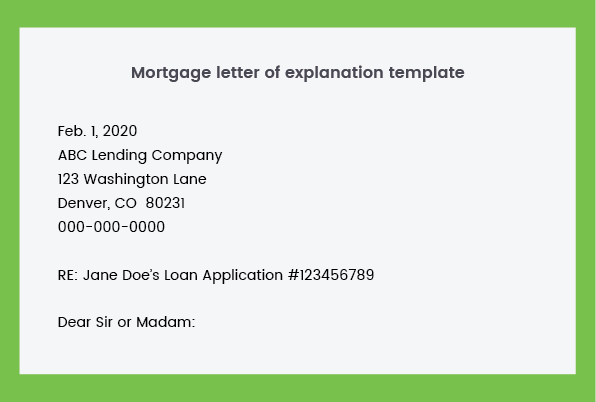Table of Content
- Loan Modification Vs. Refinance: Which Is Best For You?
- What are the similarities and differences between a cash-out refi and a home equity loan
- Guide To Fees
- Cash out refi vs. home equity loan: What you need to know
- What are alternatives to a HELOC or cash-out refinance?
- Home Equity Loan vs. Cash-Out Refinance
- What You’ll Be Responsible for Repaying
- First Service Routing Number
On the other hand, if you use your HELOC strategically and consistently make payments over time, you can expect to see a boost in your credit score. A cash-out refinance is when a homeowner refinances their mortgage to a new mortgage and in the process borrows more money than what is needed to pay off the current mortgage. The first mortgage is paid off and the homeowner gets a lump-sum payout of the extra cash amount at closing. A refinance involves taking out a new loan to pay off an existing one.

We continually strive to provide consumers with the expert advice and tools needed to succeed throughout life’s financial journey. Bankrate follows a strict editorial policy, so you can trust that we’re putting your interests first. Founded in 1976, Bankrate has a long track record of helping people make smart financial choices. We’ve maintained this reputation for over four decades by demystifying the financial decision-making process and giving people confidence in which actions to take next.
Loan Modification Vs. Refinance: Which Is Best For You?
Even if you repay your first home equity loan or cash-out refinance, you can still only tap into your equity once per year. This is important to keep in mind if you think you might need another loan a few months down the road. If you think you may need more money down the line, a home equity line of credit may be a more suitable option. Because cash-out refinances sit in the first mortgage position, they often have better interest rates than home equity loans. Home equity loans typically have favorable interest rates compared to unsecured personal loans. Texas law also caps cash-out refinance closing costs at 2% of the total loan amount.
Home equity loans and refinances are two options to get cash out of your homeownership. Cash-out refinance gives you a lump sum when you close your refinance loan. The loan proceeds are first used to pay off your existing mortgage, including closing costs and any prepaid items ; any remaining funds are paid to you. On the other hand, cash-out refinancing tends to be more expensive in terms of fees and percentage points than a home equity loan is. You will also need to have a great credit score in order to be approved for a cash-out refinance because the underwriting standards for this type of refinancing are typically higher than for other types.
What are the similarities and differences between a cash-out refi and a home equity loan
Your home secures the loan, so your home is at risk if you fall behind on your loan repayments. A traditional home equity loan is often referred to as a second mortgage. You have your primary mortgage, and now you're taking a second loan against the equity you've built in your property. The second loan is subordinate to the first—should you default, the second lender stands in line behind the first to collect any proceeds due to foreclosure. Well, there are two main reasons—lowering the overall cost of your mortgage or releasing some equity that would otherwise be tied up in your house. Cash-out refinancing and home equity loans both provide homeowners with a way to get cash based on the equity in their homes.

The two most common ways to access your home equity are cash-out refinances and home equity loans. You can calculate your home equity by subtracting your outstanding mortgage balance from the current fair market value of your home. For example, if your home was recently appraised at $300,000 and you still owe $140,000 on your mortgage, your home equity is $160,000.
Guide To Fees
The terms on home equity loans are generally shorter than traditional mortgages and cash-out refinances—often less than 15 years. A home equity loan can be used for virtually anything you want, but it is most commonly used to consolidate debt or finance big purchases. Because these loans tap into your home’s equity, it is smart to use the funds for home improvement, increasing the value of your home. However, it is important to use the funds wisely and make sure you don’t take out more than you need.

In this scenario, refinancing with a cash-out refinance loan is cheaper, despite its higher closing costs and loan amount. This is because the cash-out refinance interest rate is significantly lower than the home equity loan rate. A home equity loan and a cash-out mortgage refinance can be used for similar purposes, like funding a major home improvement project or paying off high-interest debt. Both also use the property as collateral, which puts it at risk of foreclosure if you default on either loan. Both a cash-out refinance and a home equity loan allow you to borrow against your home’s equity, using your home as collateral.
Cash out refi vs. home equity loan: What you need to know
According to the IRS, “for you to take a home mortgage interest deduction, your debt must be secured by a qualified home. How much you can deduct depends on the date of the mortgage, the amount of the mortgage, and how you use the mortgage proceeds. Check with a tax professional for more details on whether your refinanced mortgage interest is tax deductible. With a cash-out refinance, homeowners can use the cash-out to make home repairs and improvements, pay for college, a wedding, business expenses, and even pay off high interest debt.
Credit Union of Southern California offers Home Equity Lines of Credit and mortgage refinancing. Both options can be useful for tapping into your home's equity. Deciding how to use your home equity can be complicated, but it doesn’t have to be difficult! Talking to a local lender is a great way to get a complete view of how you might be able to leverage your home’s equity.
Both a HELOC and a cash out refinance can solve the issue of getting cash freed up based on your home equity. The first, a HELOC, is a credit line, or loan, that you pay back over time. The second, a cash out refinance, is a new mortgage that replaces your old mortgage for a higher loan amount, allowing you to pocket the difference. So a HELOC is a loan in addition to your mortgage, and a cash out refinance is a new mortgage for a higher amount.

The waiting period is because you have a right of rescission on a refinance, meaning you can change your mind. Lenders will rarely allow you to borrow 100% of your equity for a home equity loan. The maximum amount you can borrow varies depending on the lender, but it’s usually between 75% and 90% of the value of the home. As with a cash-out refi, the amount you can borrow will also depend on factors like your credit score, debt-to-income ratio and loan-to-value ratio . A home-equity loan is one way to pull equity out of your home without refinancing.
Refinance loans usually require a homeowner to maintain a certain percentage of equity. If the hypothetical homeowner mentioned above, whose house is valued at $600,000, wants a conventional refinance loan, they may have to retain 20% equity in the home. VA loans may allow a homeowner to borrow 100% of the home’s value. Some loan programs allow you to access some of your home’s equity. If you owe more on your loan than the value of your home, you could find yourself in a difficult financial position if property values fall. A no cash-out refinance is the process of refinancing your home for less than or the same amount that you owe on your mortgage, plus closing costs on the new mortgage.

Our mission is to provide readers with accurate and unbiased information, and we have editorial standards in place to ensure that happens. Our editors and reporters thoroughly fact-check editorial content to ensure the information you’re reading is accurate. We maintain a firewall between our advertisers and our editorial team. Our editorial team does not receive direct compensation from our advertisers. At Bankrate we strive to help you make smarter financial decisions.

No comments:
Post a Comment